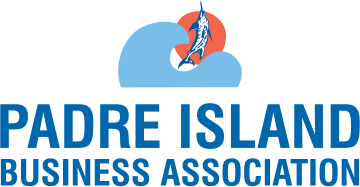U.S. consumers are experiencing the most significant 12-month increase in prices since
1981, and many small business owners are feeling the pressure. With the inflation rate
hovering around 8%, according to the Bureau of Labor Statistic’s Consumer Price Index,
many small business owners are experiencing increased costs to conduct business and
shrinking profit margins. Desperate to remain profitable, entrepreneurs are looking at how
they can cut costs or raise prices without scaring off their customers.
High inflation rates are driven mainly by significant increases in food, shelter and gas prices.
Increased energy prices, supply chain disruptions, and labor shortages add to a business
owner’s expenses. With so many cost increases, what can small businesses do? BBB
recommends the following to minimize the impact of inflation on your business.
Ways your small business can cope with inflation.
Reduce your expenses. Be intentional about where your business is spending its
money. This means reviewing your current spending and determining if it aligns with
your strategy. If employees are wasting office supplies or delivery drivers are taking
the scenic route, address the issue. Be sure to assess the revenue being brought in
by your online advertising strategy and make adjustments if it isn’t providing value.
Stock up on necessary supplies. If there are items you know you’ll use in the
year ahead, buy as much as you can now. You may get bulk discounts, and you can
minimize the impact of future price increases. Stocking up on supplies will allow you
to avoid passing on increased costs to your customers in case prices continue to
grow.
Have multiple suppliers. Having one supplier for every item your company needs
makes sourcing simple and helps develop strong relationships with vendors.
However, if you have numerous suppliers, you’ll have options if one can’t get you
what you need or their prices increase.
Evaluate your products and services. Identify what products and services are the
most profitable. Remember that consumers might be open to lower-priced options to
maintain their own budget. They also may be interested in paying more for items
and services that make a stressful time more manageable. Consider temporarily
cutting services or expenses to better focus on what generates the best results.
Raise prices wisely. If you must raise your prices to compensate for inflation, do
so wisely. Don’t increase your prices so much that it causes many of your customers
to purchase from your competitors. Instead, raise your prices just enough to offset
the impact of inflation and ensure that you can keep your small business profitable.
Also, don’t be sneaky about pricing by resorting to drip pricing or hidden fees.
Instead, be transparent. Let customers know about the increase and help them
understand why.
Prioritize customer service. When consumers know you care about their
satisfaction, they’re more likely to do business with you, even if you must raise
prices. Don't skimp on service by being understaffed. If you don't have the budget
for a full-time employee, look into freelancers and part-time staff.
Use technology. Artificial intelligence, automation and self-serve customer options
can reduce costs and take pressure off existing staff in an already tight labor market.
Take the time to research technology that you could implement in your business to
help reduce costs and maximize efficiency.
